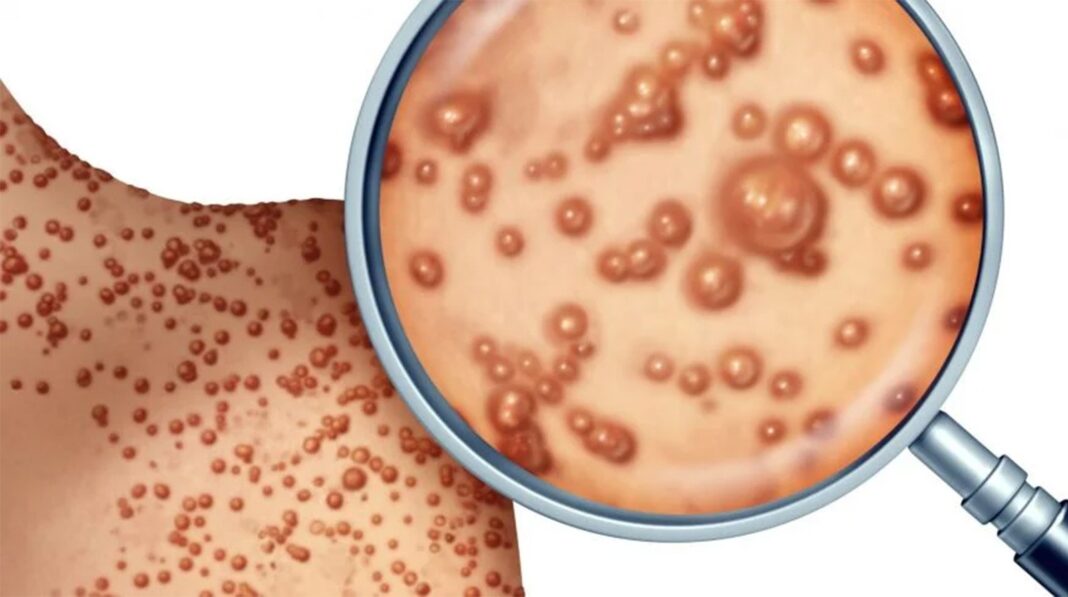By Neo Kolane
The representative of World Health Organisation (WHO) to Lesotho Richard Banda advises Basotho to be on the alert for individuals presenting with unusual vesicular or pustular rash, often associated with fever regarding monkeypox.
Banda said if a person has symptoms that could be monkeypox, they should seek advice from their health care provider.
“Let them know if you have had close contact with someone who has suspected or confirmed monkeypox.”
Banda said so far, no cases have been reported from Lesotho, but he reminds the people that infectious diseases sometimes spread quickly and do not respect borders.
“However, efforts should be made to educate the public about monkeypox and to ensure early detection. Not everyone is at equal risk.
“Closely interacting with someone who is infected poses a high risk for infection. The importance of hand hygiene by using soap and water or alcohol-based sanitizer cannot be over-emphasized,” Banda said.
Monkeypox is a zoonotic disease that is transmitted from animals to humans. It can also spread between people. It is a disease with symptoms similar, but less severe, to smallpox. The virus can also spread from someone who is pregnant to the foetus from the placenta, or from an infected parent to child during or after birth through skin-to-skin contact.
“As of 21 May, 92 laboratory confirmed cases of monkeypox with investigations ongoing, have been reported globally to the WHO from 12 countries with additional 28 suspected cases currently being investigated. These are countries that do not normally have outbreaks of monkeypox.
“As such, the current situation is concerning because it is unlike typical patterns we have seen before with monkey pox. It is unusual to see so many cases and to see human to human spread in non-endemic countries,” Banda said.
Banda revealed that monkeypox is typically transmitted with close physical contact with someone who has symptoms of monkeypox, or with an infected animal. Cases are often found close to tropical rainforests where there are animals that carry the virus. Carriers include squirrels, dormice, different species of monkeys and others.
People who were vaccinated against smallpox are likely to have some protection against monkeypox infection. However, younger people (below 40-50 years) are unlikely to have been vaccinated against smallpox because smallpox vaccination stopped worldwide after smallpox became the first human disease to be eradicated in 1980.
Even though people who have been vaccinated against smallpox will have some protection against Monkeypox, they also need to take precautions to protect themselves and others.
Newborns, children and people with underlying immune deficiencies may be at risk of more serious symptoms and death from Monkeypox.
Health workers are also at higher risk due to longer virus exposure.
The risk of humans becoming infected via animals can be reduced by avoiding unprotected contact with wild animals, especially those that are sick or dead, including their meat and blood. All foods containing animal meat or parts must be thoroughly cooked before eating.
“Monkeypox can affect anyone and is not associated with any particular group of people. While some of the cases have been reported among people with close and sexual contact, this virus can affect anyone. It is wrong to stigmatize anyone.
“Monkeypox symptoms include fever, intense headache, swollen lymph nodes, muscle ache, and a rash that blisters and crusts. The rash tends to be concentrated on the face, palms of the hands and soles of the feet.
“The mouth, genitals, and eyes may also be affected. The symptoms and skin rash generally last for several weeks during which time a person can be infectious to others.
“Symptoms typically last between two to four weeks and go away on their own without treatment but can be severe or fatal, particularly in children,” Banda said.
Banda said residents and travellers to endemic countries should avoid contact with sick animals (dead or alive) that could harbour monkeypox virus (rodents, marsupials, primates) and should refrain from eating or handling wild game (bush meat).
He said any illness during travel or upon return from an endemic area should be reported to a health professional, including information about all recent travel and immunization history.
“Vaccination against smallpox has been shown to be protective against monkeypox. A new vaccine against smallpox and monkeypox has been approved but is not yet widely available.
“There are several vaccines available for prevention of smallpox that also provide some protection against monkeypox.
“A newer vaccine that was developed for smallpox was approved in 2019 for use in preventing monkeypox and is not yet widely available. The WHO is working with the manufacturer to improve access,” Banda revealed.









